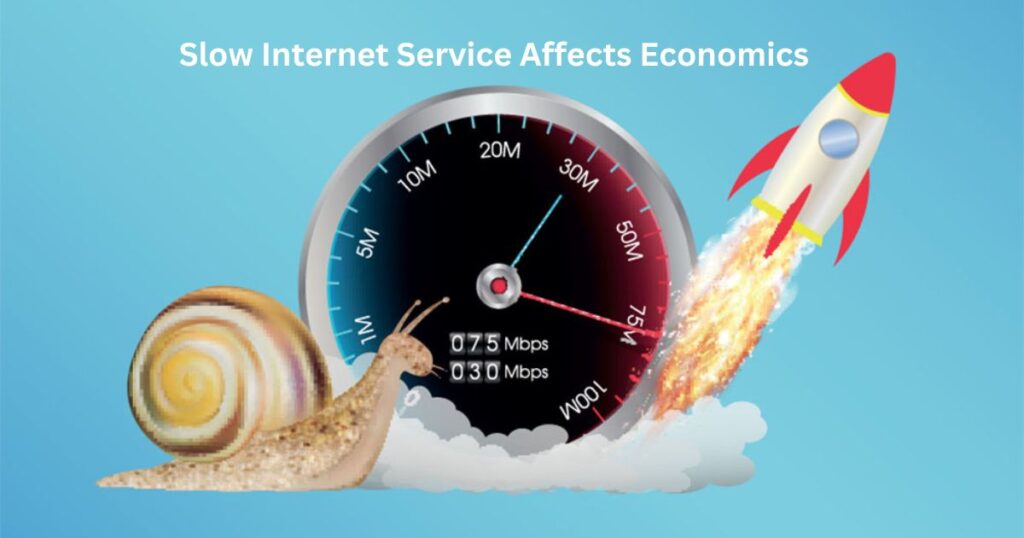Some contend that the prosperity of our economy is intrinsically tied to advancements in internet technology. In the present day, the prevalence of technology surpasses all historical precedents. Consequently, its economic implications are profound. A widespread belief is that the inertia of internet service providers, who are seemingly reluctant to offer services at prices the majority can afford, is an anchor dragging on economic growth. But how much substance does this viewpoint hold?
How Slow Internet Service Affects Economics

Speed and cost of Internet Service
Internet service a quandary that remains unresolved. Numerous internet services offered by various companies come with a hefty price tag – for instance, a fiber-optic connection might set you back as much as $300 per month. Yet, there are other providers who have successfully engineered ultra-high-speed connections for a mere fraction of that cost.
There’s a school of thought that attributes the escalating cost of internet services to companies’ profit-driven motives, rather than the rising costs of raw materials. Analogously to how we reluctantly pay for gasoline, irrespective of its cost, because we need it to commute, we likewise submit to the prices internet providers demand in order to maintain the connectivity essential for our daily tasks.
Contrarily, some argue that the internet, particularly broadband, is a significant economic booster. It’s been observed that the expansion of broadband access and enhancement of its speed have enabled nations worldwide to tap into larger markets, thereby bolstering their economies.
From an individual’s perspective, studies have revealed that in certain countries, household incomes have surged by up to $800 annually following the introduction of a meager 0.5 Mbps broadband connection. A few reasons are attributed to this rise. One is that high-speed internet allows for smoother video streaming and access to more efficient work methods. Additionally, it’s been observed that the faster the broadband speed, the higher the individual productivity.
Several signs also indicate that broadband plays a crucial role in democratizing education. It empowers people with knowledge, enriching their lives, whereas countries devoid of broadband lag behind in competitive markets.
Slow Internet service affects economics
Even advanced nations are not exempt from challenges.
In the United States, a perceived stagnation in growth is driving experts to propose technological innovation as a potential solution. Admittedly, the internet speeds in the U.S. significantly exceed those in many other nations. Therefore, the emphasis is on harnessing broadband and similar technologies to enhance living standards and boost productivity across various sectors.
However, experts caution that this transition may present a significant challenge. For companies stuck with outdated, minimal, or no technology, the path to technological modernization may be long and steep. This is primarily due to the high costs associated with adopting and installing new technologies. Other hurdles, including regulatory issues, also need to be tackled.
Read More Article: How to Open a Bank Account for a Minor in India




